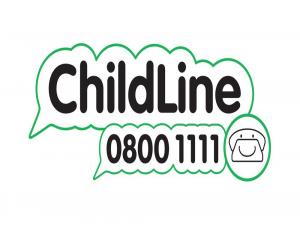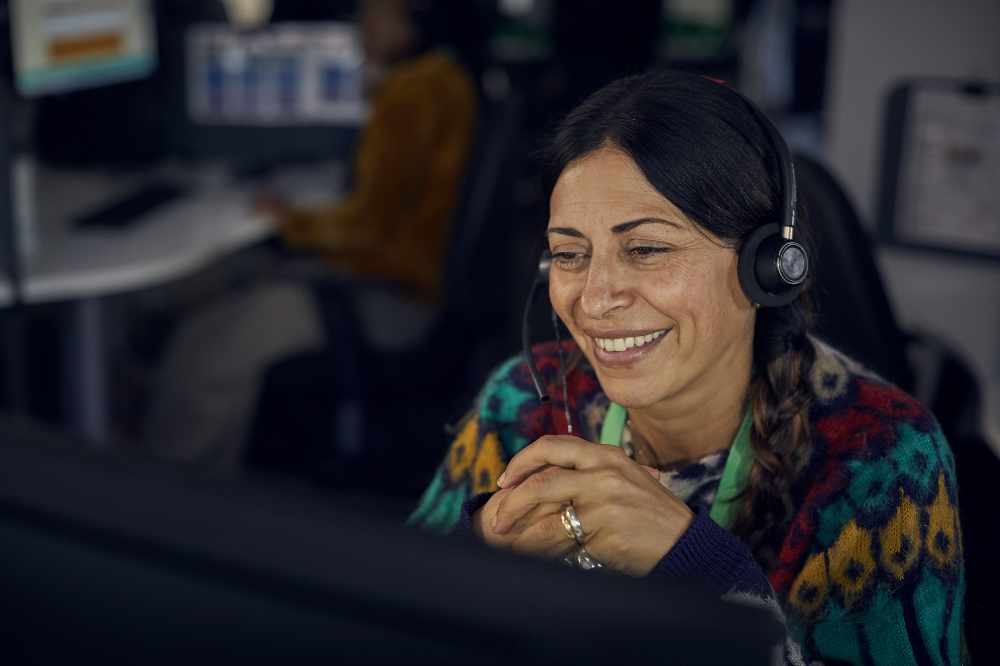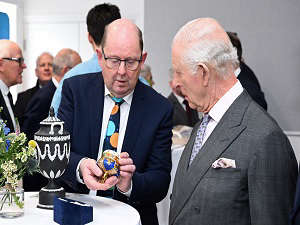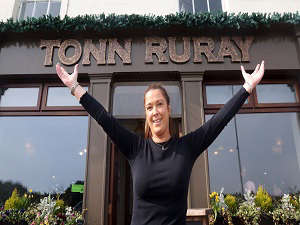
By Q Radio News
Childline has seen an increase of more than 25 per cent in young children in Northern Ireland getting in touch about their mental health and emotional wellbeing during lockdown.
The NSPCC-run service is publishing its latest data which reveals that since the beginning of lockdown there have been 373 counselling sessions carried out with children in Northern Ireland about mental health concerns.
This is a monthly average of 124 sessions compared with 99 prior to lockdown.
NSPCC Northern Ireland is growing increasingly concerned that children are the hidden victims of the Coronavirus (COVID-19) crisis, with Childline providing a vital lifeline to children whose counselling sessions have shown that mental health is their top concern.
Throughout the pandemic young people have told counsellors they are feeling low, unhappy, overwhelmed and more recently talked about the anxiety they feel as we look to come out of lockdown.
Some children talked to Childline about family relationships, sharing that arguments, increased parental stress levels and abusive home environments are impacting their mental health.
Worryingly, the average number of counselling sessions with children across the UK about abuse has increased by around a quarter since lockdown began.
Also, UK-wide, the number of counselling sessions with 11-year-olds and younger has increased by 37% compared to before the lockdown.
An eight year-old-girl told Childline:
“I am feeling sad and worried. I am scared of Covid-19 and feel like my family don’t care about me. I don’t get any attention and am always fighting with my mum. I live with just my mum and don’t see dad much.
"We live in a tiny flat and sometimes we get so angry with each other we end up fighting. After we have had a fight I hurt myself because I feel like I am not good enough.”
The number of counselling sessions where children mentioned worries about the world have more than doubled compared to before lockdown and the easing of lockdown has increased anxiety levels for some young people.
They have shared concerns about returning to school, catching the virus, classwork, exams and how school life will be now.
The NSPCC is calling on the Northern Ireland Executive to ensure that its Coronavirus recovery plan prioritises the needs of children and young people.
This should include plans to provide adequate and appropriate support in both education and health, with a particular emphasis on the identification of vulnerability and trauma and meeting children’s needs.
This should include increased investment in children’s emotional and mental well-being in schools and child and adolescent mental health support for children and young people required as a result of the Covid-19 pandemic.

A Childline councillor (credit Tom Hull)
Donna Fulton, a supervisor at Childline Foyle, said: “There is no doubt that the Coronavirus pandemic has had a direct impact on the mental health of many of our children and young people in Northern Ireland.
“It is vital that Childline can continue to be there to help support young people to cope and recover from the aftermath of this crisis. We also need to see this backed up by an ambitious recovery plan that ensures children can access the vital services they need to begin to move forwards.”
Esther Rantzen, Founder of Childline said: “The Coronavirus pandemic has turned children’s lives upside down, cutting them off from the places they have relied upon in the past for comfort and support.
"During lockdown, the virus has imprisoned them in homes which may not be safe, with emotional and physical abuse, violence, or neglect. This has meant many young people have turned to Childline as their only lifeline, and have shared with us that they are unable to cope, and are desperate for help.
"We know that by providing children with a safe, confidential way to share their anxiety, as well as timely support so they can describe their feelings, we can help to prevent their problems totally overwhelming them.
“At Childline we have always provided a vital listening ear for our young people who know we are there for them, and our website offers practical help to calm and reassure them. But as lockdown eases, and as life continues to feel uncertain and challenging, it is essential that in addition to Childline our children have access to the mental health resources they will need to help them cope.”
Despite Childline having to close the night service for the first time and having a 30% drop in volunteer hours, due to counsellors having to self-isolate, it continues to still be there for children across the UK.
And as children continue to struggle with the uncertainty that surrounds them and with many in homes that are unsafe, funding for the NSPCC’s Still Here for Children appeal has never been more important.
The charity is asking the public to donate £10 so it can continue to run services like Childline that are providing vital support to children during the pandemic.
The NSPCC has praised NHS staff for their work with young people remotely during the lockdown and urged children and families to reach out to the GPs for support.
Adults concerned about a child can contact the NSPCC helpline seven days a week on 0808 800 5000, or email help@nspcc.org.uk. Children can call Childline on 0800 11 11 or visit www.childline.org.uk 365 days of the year.


 Nine Northern Ireland schools targeted with threatening email thought to be hoax
Nine Northern Ireland schools targeted with threatening email thought to be hoax
 Exhumed remains not those of Disappeared victim Joe Lynskey
Exhumed remains not those of Disappeared victim Joe Lynskey
 King and Queen conclude three-day visit to Northern Ireland
King and Queen conclude three-day visit to Northern Ireland
 Conor McGregor seeks to introduce new evidence in civil rape appeal case
Conor McGregor seeks to introduce new evidence in civil rape appeal case
 The UK’s ‘best places to live’ revealed in annual Sunday Times guide
The UK’s ‘best places to live’ revealed in annual Sunday Times guide